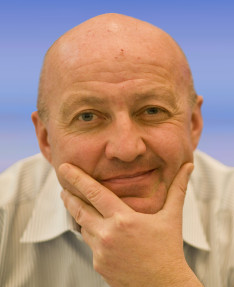Tapping into our inner caveman instincts
Marketers need to be  aware of the greatest natural forces that affect human behaviour including how we’re hardwired to think less says Paul Fishlock, in a piece that first appeared in Encore.
aware of the greatest natural forces that affect human behaviour including how we’re hardwired to think less says Paul Fishlock, in a piece that first appeared in Encore.
Back when poking dinosaurs was a dumb way to die, evolution installed an operating system in our brains so we’d stick around long enough to pass on our genes. There’s never been an upgrade.
With areas of marketing changing on the hour, it’s easy to forget that some of the strongest forces determining your behaviour today were designed for the hunting, foraging world of our early ancestors; hard-wired survival and reproduction instincts that are so much a part of us we are unaware of them. But marketers should be.
Why do we want to be a part of communities? So there are people we trust to look after our kids when we’re out mammoth hunting. Why are we more sexually attracted to 20-year-olds than 70-year-olds? Because they produce better babies. Why do we eat more than we need? Because our ancient mind wants us to stock up on sugar, salt and fat in case there’s a famine. Marketers don’t need a PhD in evolutionary psychology but, given we’re in the influence business (not the entertainment business), being aware of some of the greatest forces affecting human behaviour wouldn’t be a bad thing.


Smart article Paul and really exciting to read a great thinker like yourself is in the behavioural economics space.
I’m reading Robert Heath’s Seducing the Subconscious now and it’s packed full of studies referencing the unchanging man and how advertising doesn’t work how we’ve been taught to think it works, i.e: AIDA was designed by a door to door salesman. Dan Ariely’s Predictably Irrational is next on the reading list. I’ve read Brainfluence, what’s some other good reading and ted talks in this space?
Standing infront of clients presenting creative work based upon some of this thinking as a framework is tough but fun.
Nice article. Or is that just my confirmation bias kicking in?
Figuring out how humans work. Sounds crazy but it just might work.
Nice topline of the importance of BE learnings. It’s interesting that even as we’re understanding more about what irrationally simplistic decision makers we really are that the ad industry is ploughing ahead with building detailed, facts based comms spread across the ‘consumer journey’.
Paleo-marketing 101 – love it!
I’ve found to my disappointment since returning to Australia that when I make great efforts to discuss actual findings, insights and approaches with others in my specialist field all I get is blank, academically fearful stares along with great wafts of neolithic rigidity, followed by indefinite hubristic silence.
On the bright side though, sharp clients are taking to this new movement quite well.